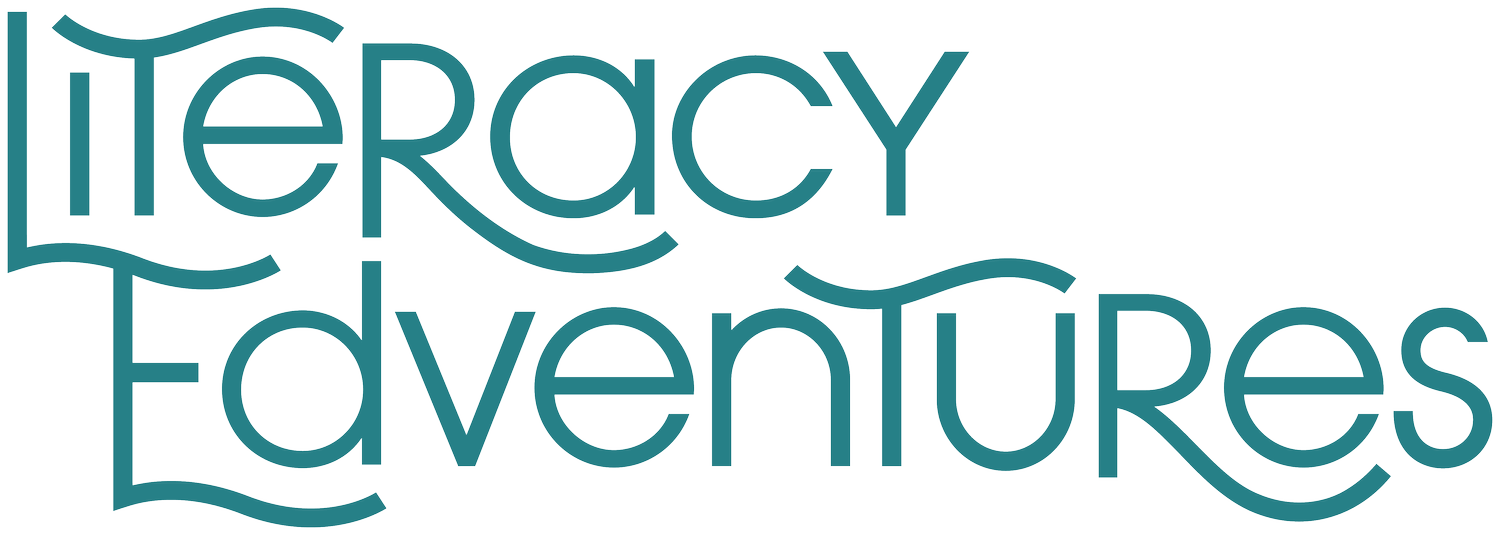A Peek Inside One Second Grade Teacher’s Literacy Block
Meet Kaylee McCaslin:
Currently teaching second grade in Washington
9th year of teaching
Our very own Literacy Edventures member!
Reach out to her!: kaylee.kinsey@gmail.com
We love to feature all kinds of people here on the LE Podcast, and we feel that teachers who are still in the classroom are so important to hear from because they’re in the trenches with us. Today, we’re chatting with Kaylee about a “day in the life” in her amazing classroom!
Can you talk about your journey to the science of reading?
Like many teachers, when I was new I didn’t know where to start and I was using a curriculum that was quite old.
As I became more confident in my teaching, I began going to trainings to learn more about how to teach reading.
After doing many trainings, I found that there was no way I could keep sending my 2nd graders off to 3rd grade without implementing these strategies I was learning.
You were an integral part of adopting your school’s reading curriculum. Can you talk about the process of that?
The committee was composed of a lot of people - mainly elementary.
The district brought us top curriculums and we looked at their ratings. When we chose our final picks, they brought in the samples and we went through them.
Fountas and Pinnelll and Wit & Wisdom, Geodes, and Fundations from Wilson were the top two.
My teaching partners in 2nd grade and I compared them by piloting the two curriculums at the same time.
Came back to meet with the committee and brought our research and experience with the two curriculums and ended up happily choosing Wit & Wisdom, Geodes, and Fundations.
Can you break down your literacy block for us?
Wit & Wisdom whole group lesson (30 minutes)
We deep dive into the book, journal, preview the text for the coming week, work to develop background knowledge, comprehension, etc.
WG Fundation whole group phonics lesson (20 minutes)
This is where everyone has access to their core phonics instruction.
RTI Block (40 minutes)
First, we did the DIBELS assessment on the entire grade. Any student who was flagged did another screener that would show the exact area or skill of struggle.
We ended up giving this screener to the rest of the grade level, even if they weren’t flagged. And sure enough - many of them popped up as needing more support! My advice is to not let one beginning-of-the-year screener dictate where you spend the next 4-6 weeks with your students. It’s important to chat with classroom teachers as well to see what they see in their room. This helps get the “whole picture” of the child before assigning them to a specific group.
During our RTI time, students are divided up between our reading specialist, three classroom teachers, and special ed teachers.
What I do with my 8 RTI students:
Drill sounds - I show them a card with just the letter on it. Students tell me the sounds and they dictate onto white boards. I then move on to whole words and sentences. After sentences, we work on their memory and I have students work on repeating the sentence back to me.
Move into the Geodes text - We talk about the book by a picture walk, word hunt on the focused skill, and dictate sentences that are from the book.
Games - Mix It, Fix It Sentences are my favorite!
I like to take turns, using Geodes one day and games the next.
Back into the classroom, we start our small group time.
Students choose between Wit & Wisdom or computer time
The other portion of students are meeting with me at the small group table doing Wit & Wisdom in the area that they need support (enrichment, writing, etc.)
During this time, other students are working on literacy centers or reading books.
Occasionally, all students will participate in the Wit & Wisdom extra support because it’s so rich and dense, it’s not uncommon for the majority of the kids to need help in one specific area.
Kaylee also loves to note that she’s grateful for all of the adults that are making things happen in her school. She has passionate principals at work who believe in the value of small groups, as well as a strong number of adults who can hop in and help with RTI, small groups, etc. Team work makes the dream work!

